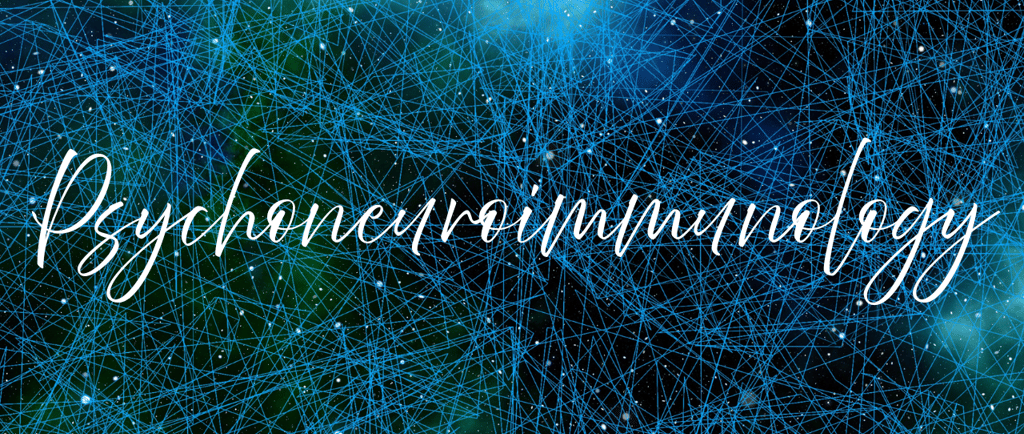Upgrade Your Immunity: Think Yourself Well
PROACTIVE WELLNESS - PREVENTIONVESSEL WELLNESS BLUEPRINT - THE BODYTHE WELLNESS SPECTRUM - HOLISTIC


Your #1 Immune Booster Isn't in a Bottle. It's In Your Head.
For centuries, we were taught that the mind and body were separate entities. A negative thought was just a thought. But science is now proving what ancient wisdom has always known: your mind and body are in constant, profound conversation. You are not a passive observer of your health; you are an active participant in its creation.
Decoding PNI: The Science of How Thoughts Shape Biology
Welcome to the field of Psychoneuroimmunology (PNI). It’s a long word for a simple, revolutionary idea: Your thoughts and emotions (psycho) directly affect your brain and nervous system (neuro), which in turn directs your immune system (immunology).
This isn't wishful thinking; it's a biological reality. The communication happens through a complex network of nerve pathways and biochemical messengers. When you experience an emotion—be it joy, fear, or gratitude—your brain releases neuropeptides. These chemical signals travel throughout your body and dock onto receptors on your immune cells, literally giving them instructions that can either ramp up or calm down their activity.
This means your immune cells are constantly eavesdropping on your mental chatter.
The Biological Cost of Your Mindset: Dangers and Benefits
Understanding this connection reveals why your mental state is a critical component of your physical health.
The Dangers of a Stressed Mindset
Chronic stress is the most obvious example of PNI in action. When you're constantly worried or overwhelmed (a common state for someone facing a health scare), your body floods with the stress hormone cortisol. In the short term, this is helpful for survival. But chronically high cortisol is devastating to your defenses. It actively:
Suppresses the function of crucial immune cells like T-cells and Natural Killer cells, which are your primary defense against viruses and rogue cells.
Increases pro-inflammatory cytokines, leading to chronic, low-grade inflammation—a known root cause of many modern diseases.
Slows healing and makes you more vulnerable to infections.
The Benefits of a Healing Mindset
But the opposite is also true. This is where your power lies. Studies in PNI have shown that practices that cultivate positive and resilient emotional states—like gratitude, optimism, compassion, and meditation—can have the opposite effect. These states can:
Reduce inflammation by lowering pro-inflammatory messengers.
Enhance the activity of your immune cells, making them more effective at their job.
Buffer the effects of stress, helping your body return to a state of balance and healing more quickly.
Boost levels of sIgA, an antibody that serves as your body’s first line of defense in the mucous linings of your gut and respiratory tract.
How to Actively Steward Your Immune System: A Step-by-Step Guide
Cultivating a healing mindset is a skill, and like any skill, it can be learned and strengthened with practice.
Step 1: Acknowledge and Observe. The first step is to become aware of your habitual thought patterns. Without judgment, simply notice your internal dialogue. Do you tend to ruminate on worries? Do you default to catastrophic thinking? Awareness is the necessary starting point for change.
Step 2: Actively Interrupt the Pattern. When you catch yourself in a negative thought loop, create a "pattern interrupt." This can be a physical action like standing up, stretching, or placing a hand on your heart. It can also be a mental command, like silently saying, "Stop" or "Cancel." This small pause breaks the momentum of the negative spiral.
Step 3: Intentionally Reframe. After interrupting the thought, consciously choose a more balanced or empowering perspective. This is not about "toxic positivity" or denying reality. It's about finding a more resourceful view. For example, instead of "This is a disaster," you might reframe it as, "This is a challenge, and I have the resources to handle it."
Step 4: Proactively Cultivate Positive States. Don't just play defense against negative thoughts. Go on offense by dedicating time each day to practices that generate healing emotions. This is where gratitude journals, meditation, and mindfulness come into play, actively wiring your brain for resilience.
From Theory to Daily Practice: The Importance of Mental Hygiene
This is the ultimate act of stewardship. Your thoughts are not passive. They are active signals that shape your biology. Incorporating these practices into your daily life is a form of "mental hygiene," just as essential as brushing your teeth.
You aren't just doing this to "feel better" in the moment. You are fundamentally training your nervous system to have a higher baseline of resilience. By making this a daily practice, you ensure that when significant life stressors do arise, your mind and body are already primed for a healing response, rather than an automatic stress response.
PNI in Action: Quick Tips, Tricks, and Alternate Techniques
Three Good Things: At the end of each day, write down three things that went well and briefly explain why. This trains your brain to scan for the positive.
Gratitude Practice: Start your morning by thinking of three specific things you are grateful for. Feel the emotion of gratitude in your body. This sets a positive tone for your entire nervous system.
Guided Imagery & Visualization: Spend 5-10 minutes vividly imagining your immune cells as strong, intelligent, and effective, successfully defending your body. This technique uses the power of the mind's eye to send powerful signals to your body.
Mindful Breathing: When you feel stressed, take five slow, deep breaths, making your exhale longer than your inhale. This simple action can instantly activate your parasympathetic ("rest and digest") nervous system, calming the stress response.
Laughter: Watch a funny movie or video. Genuine laughter has been shown to decrease stress hormones and increase the activity of immune cells.
Conclusion: You Are the Author of Your Biology
The science of Psychoneuroimmunology confirms a profound truth: you are in a collaborative relationship with your body. While you can't always control the events that happen to you, you have a remarkable ability to influence how your body responds. By choosing to cultivate a mindset of gratitude, resilience, and optimism, you are sending healing, strengthening messages to every cell in your body.
Your call to action is to choose one—just one—of the practices from the list above and commit to it for the next seven days. Notice how it feels. Witness the connection in your own life. Begin to see your thoughts not as random noise, but as one of the most powerful tools you have. It's time to Decode Your Design for resilience.


